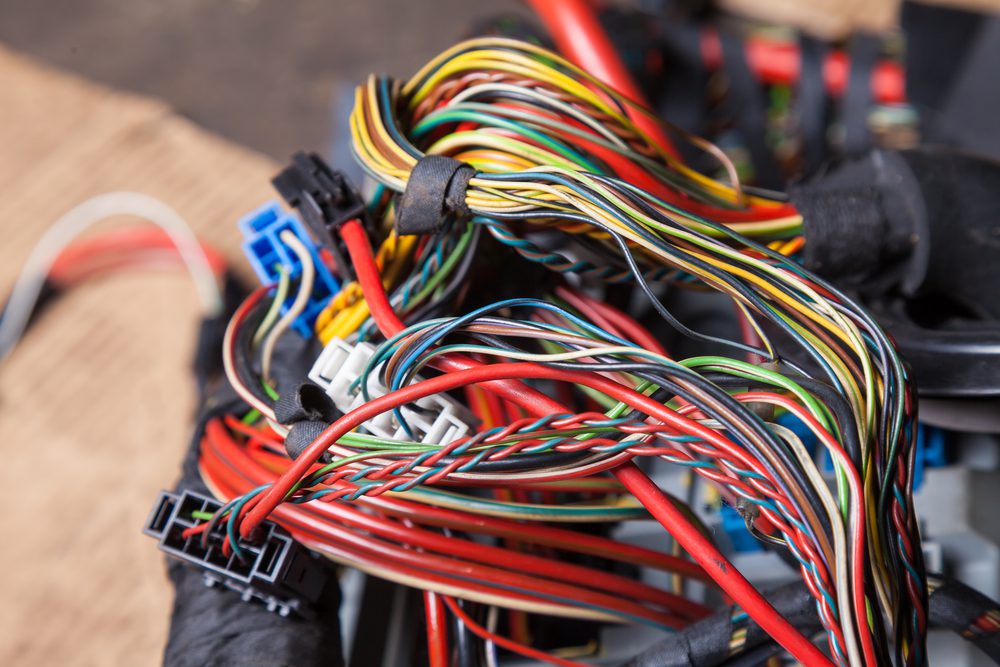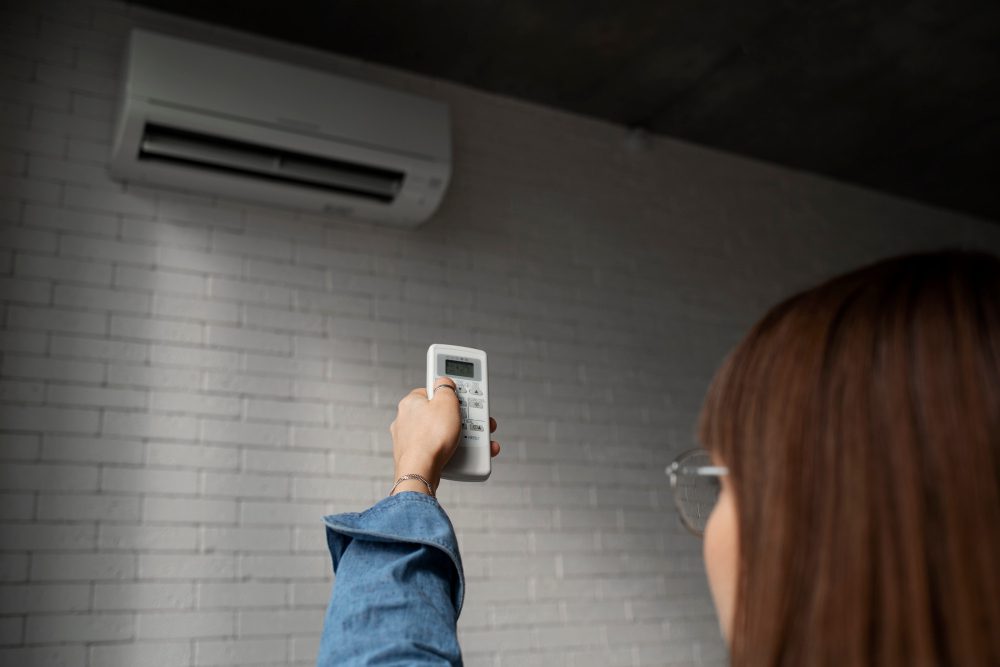What is a climate control unit?
A climate control unit, also known as a climate control system or HVAC (Heating, Ventilation, and Air Conditioning) system, is a device used to regulate and maintain the temperature, humidity, and air quality of an indoor space. It is commonly found in residential homes, commercial buildings, and vehicles. The primary purpose of a climate control unit is to provide comfort and improve the overall indoor environment.
How does a climate control unit work?
A climate control unit works by utilizing various components to control temperature, humidity, and airflow in a controlled space. These components include:
1. Thermostat: The thermostat acts as the control panel for the climate control unit. It allows users to set their desired temperature, which triggers the unit’s heating or cooling functions.
2. Heating system: A heating system, typically powered by gas or electricity, provides warmth during colder seasons. It may consist of a furnace, boiler, or heat pump that circulates warm air or water throughout the space.
3. Cooling system: The cooling system, usually an air conditioner or refrigeration unit, removes heat and humidity from the indoor air. It circulates cool air through vents or ductwork to lower the temperature.
4. Air filtration and purification: Climate control units often incorporate air filters and purifiers to remove dust, allergens, and pollutants from the air. This helps improve indoor air quality and ensures a healthier living or working environment.
Benefits of a climate control unit
A climate control unit offers several advantages, including:
1. Comfort: A well-functioning climate control unit ensures a comfortable and consistent indoor temperature, regardless of weather conditions outside. It allows individuals to adjust the temperature according to their preferences, providing a pleasant living or working environment.
2. Energy efficiency: Many modern climate control units are designed to optimize energy consumption. They include features like programmable thermostats, timers, and energy-saving modes, which help reduce energy wastage and lower utility bills.
3. Health and well-being: By controlling humidity levels and filtering out airborne contaminants, climate control units contribute to better indoor air quality. This is particularly beneficial for individuals with respiratory conditions or allergies.
“Having a climate control unit in your home or workplace can greatly enhance your comfort and overall well-being.”
Common types of climate control units
There are various types of climate control units available, each suited for different applications. Some common types include:
1. Centralized systems: These systems use a network of ducts to distribute conditioned air throughout an entire building. They are commonly found in larger residential properties or commercial establishments.
2. Split systems: Split systems consist of both an indoor and outdoor unit. The indoor unit contains the evaporator coil and blower, while the outdoor unit houses the compressor and condenser. They are popular choices for individual rooms or smaller spaces.
3. Portable units: Portable climate control units are compact and movable. They are typically used to cool or heat specific areas, such as bedrooms or small offices. They do not require installation and can be easily transported from one room to another.
What does a climate controller do?
A climate controller, also known as a climate control unit, is an essential component in maintaining optimal indoor temperature, humidity, and air quality. It is designed to regulate and adjust these factors to create a comfortable and healthy environment for occupants.
Temperature Control
The primary function of a climate controller is temperature control. It monitors the ambient temperature and uses various mechanisms to adjust it according to the set parameters. This ensures that the space remains cool during hot weather and warm during cold weather.
Humidity Regulation
In addition to temperature control, climate controllers also regulate humidity levels. They can increase or decrease the moisture content in the air based on the desired level. Maintaining proper humidity levels is crucial for preventing mold growth, improving air quality, and promoting overall comfort.
Air Quality Management
Climate controllers play a vital role in managing air quality. They filter out pollutants, such as dust, allergens, and volatile organic compounds (VOCs), providing clean and fresh air indoors. Some advanced models even have sensors that detect harmful gases and automatically adjust ventilation to maintain a healthy environment.
Energy Efficiency
Modern climate controllers are designed with energy efficiency in mind. They optimize energy consumption by adjusting heating and cooling systems based on occupancy and external weather conditions. This not only reduces energy waste but also helps lower utility bills.
Additional Features
Besides the core functions mentioned above, climate controllers may have additional features, such as:
- Programmable settings – Allows users to schedule temperature and humidity changes throughout the day to suit their preferences.
- Zoning capabilities – Enables different areas within a building to have individual climate control.
- Data monitoring – Provides real-time information on temperature, humidity, and air quality, allowing users to track and analyze indoor conditions.
In summary, a climate controller is responsible for maintaining a comfortable and healthy indoor environment by regulating temperature, humidity, and air quality. With advanced features and energy-saving capabilities, it plays a crucial role in enhancing overall well-being and maximizing energy efficiency.
What is a Climate Control Unit?
A climate control unit is a system designed to regulate and maintain a comfortable indoor environment, regardless of external weather conditions. It helps to control temperature, humidity, airflow, and air quality within a building or vehicle. There are several different types of climate control systems available, each with its own advantages and applications.
1. Air Conditioning Systems
Air conditioning systems are perhaps the most common type of climate control system. They work by removing heat from the indoor air and transferring it outside, thus cooling the space. Air conditioning units can be used in homes, offices, cars, and even portable devices. They help to maintain a comfortable temperature during hot summer months.
2. Heating Systems
Heating systems, on the other hand, are used to warm up indoor spaces during colder weather conditions. They come in various forms, such as central heating systems that distribute warm air through vents or radiators, or localized heaters like electric or gas-powered space heaters. Heating systems are essential for maintaining a cozy and warm environment during winter.
3. Ventilation Systems
Ventilation systems play a crucial role in maintaining air quality and circulation within a building. They help to remove stale air, odors, and pollutants and replace them with fresh outdoor air. Ventilation systems can be natural (e.g., windows and vents) or mechanical (e.g., fans and air handling units). They are essential for ensuring proper airflow and preventing humidity buildup, which can lead to mold growth and other health issues.
Air conditioning, heating, and ventilation systems are the three main types of climate control systems.
In addition to these main types, there are also hybrid systems that combine two or more functionalities. For example, some air conditioning units have built-in heating capabilities, providing both cooling and warming functions in one device. This versatility can be particularly useful in regions where the climate varies greatly throughout the year.
It’s important to consider the specific needs of your environment when choosing a climate control system. Factors such as size of the space, insulation, energy efficiency, and budget should all be taken into account. Consulting with a professional can help you determine the most suitable system for your requirements.



